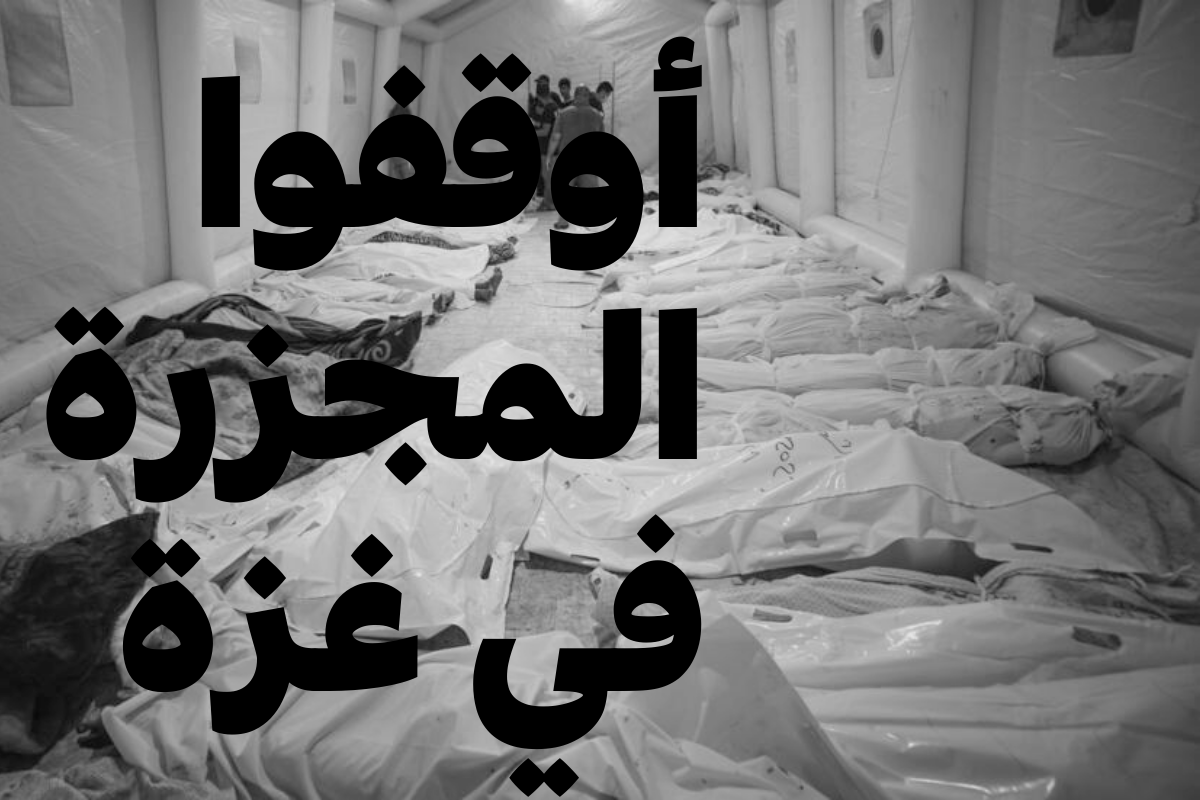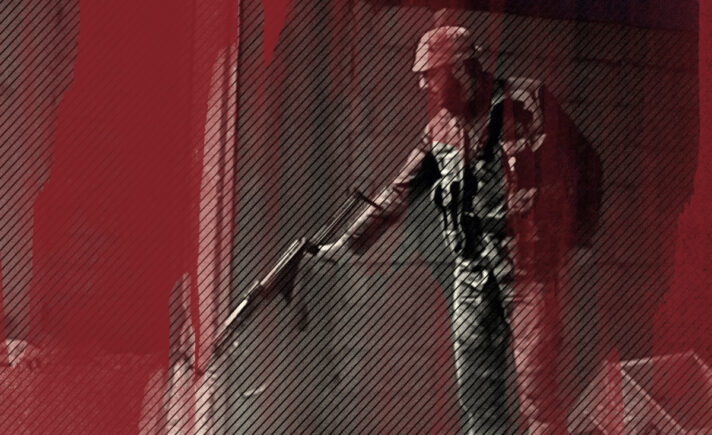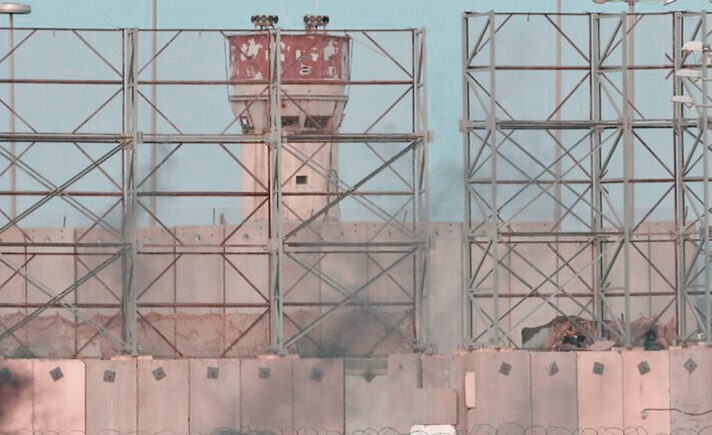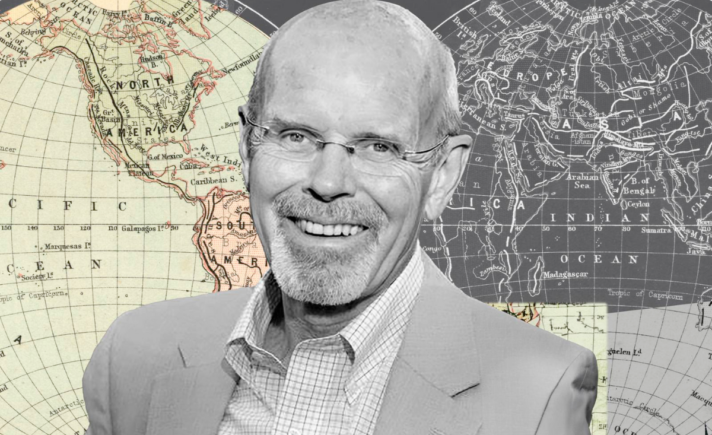From the onset of this war, which is unlike any conflict the Gaza Strip has yet seen, Israel – backed by much of the ‘civilized world’ – has framed its airstrikes as a response to Hamas and Hamas alone, whose aggression in turn has been depicted as happening in a vacuum, outside any political or historical context.
Hamas thus became the headline. International media presented the narrative of a war unfolding between Israel and Hamas, and every Palestinian guest or commentator was pressed to condemn Hamas, even when discussing the victims lost in their own families as a result of Israeli strikes. (The Palestinian Ambassador to London, Hossam Zomlot, was subjected to such treatment.)
Meanwhile, there were outbursts of anger from Israeli officials whenever they were probed about the mounting number of Palestinian civilian casualties in Gaza. Naftali Bennett shouted at a Sky News anchor, “Are you serious?! We’re fighting Nazis.” Miral Ben Ari, a member of the Israeli Knesset, exclaimed that the children of Gaza had brought the situation upon themselves when confronted by Arab MP Aida Touma-Sliman. Even Israeli President Isaac Herzog, in a largely ceremonial role, displayed anger at questions about Gaza’s civilians, suggesting they should have risen up against Hamas.
Thus, Israel and its backers have adopted a two-fold narrative: on the one hand, their battle is solely with Hamas, but on the other, they treat the entire Palestinian people, their cause and grievances, as being encompassed by Hamas. In this portrayal, any endorsement of Palestinian rights or criticism of Israel’s actions and policies is seen as an alignment with Hamas. Palestinian symbols, from the national flag to the keffiyeh, are linked to Hamas. Even Palestinian writers attending cultural events in Europe are suspected of having ties to Hamas.
Against this backdrop, where does the horrific bombing of al-Ahli Baptist Hospital fit in? Massacres do not usually encourage debate, they usually end it; but not here, not this time. After the massacre, Israel was quick to respond. It quickly claimed “Hamas” was behind the massacre, before shifting its accusation to “Jihad”. But even without this accusation, Western capitals and media were already cautious and slow to accept the Palestinian ‘allegations’. The striking difference between the hesitation to believe Palestinians and the readiness to believe Israel underscores the very violent prejudice that has stood at the heart of this conflict since it began, in the early twentieth century.
Israel’s genocidal campaign against the Palestinian people is portrayed as a war against Hamas to appeal to an audience that needs this narrative, not only within Israeli society but also in the United States, Europe, Japan, India, and some Arab communities. But luckily, words outnumber bombs, and the global perspective is much broader than Israel’s viewpoint. No matter how devastating events are, they cannot and should not silence our speech.
Unlike those responsible for the massacre, those who justify it, and those complicit in it, we are not tied down to a single narrative. Many of us across the world have the ability to connect with diverse and international audiences. In various languages and means of expression, we emphasize that one need not support Hamas, or wave the Palestinian flag, or wear symbolic attire like the keffiyeh, or even chant “Free Palestine” to support the immediate end of this war. One need not even identify as a humanitarian or an advocate of international law to insist that ending the war immediately and finding a comprehensive, just and viable political solution is in the entire world’s interest. Prolonged and expansive wars such as this one jeopardize not just the peace of our region, such as it is, but the security, freedom, and rights of people across the world. Even those detached from the issues of Palestine or Gaza should grasp the global perils of sustained conflict, and recognize the implications for their own well-being too.
This is not the first atrocity committed, nor is it the most extensive, but it is a massacre quintessentially Israeli, fitting a pattern of aggression, denial, and impunity. It is an act of violence that had been ominously looming for days, since its perpetrators declared that they were battling “human animals.” Israel has brazenly violated every tenet of international and international humanitarian law; and the world – by denying Palestinians their fundamental rights, overlooking the core political substance of the conflict, and reducing all of this to the simple, hollow utterance ‘Hamas’ – has facilitated this massacre.
In a world in which a nation can openly threaten to bomb a hospital, carry out that crime with impunity, and then justify its actions based on its prior threat, we witness the global norms being set by allowing Israel to persist with its war in Gaza.






